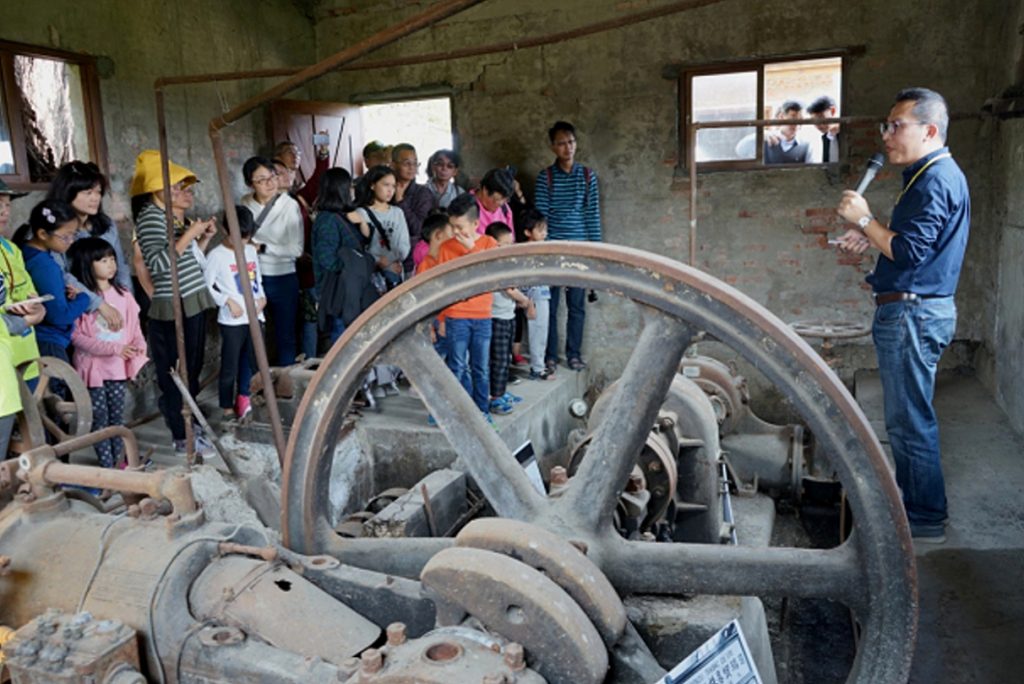
Starting in 2015 the Tainan Municipal Administration of Cultural Heritage began commissioning a series of professional teams to interview people about their memories of Chianan Irrigation Canal. These interviews revealed the local stories of Chainan Plain’s golden fields.
Liujia District’s Jingpu Pond is a hidden gem filled with beautiful bald cypress trees. Next to a Chinese banyan tree by the shore sits a pumping station from the Japanese colonial period. The last station manager is now 90 years old. The older gentleman reflected, “I was a cow herder for a wealthy family when I was child. Then I worked for the Irrigation Association. Everyday, I would carry diesel fuel by myself to the station, and start the pump, following the steps I learned from my predecessor. Water was pumped from the pond for the farmers to irrigate their land. When the pump broke down or the water outlet was plugged, I would have to quickly fix the machine using what simple tools I had. There could not be any delay.” After the completion of Zengwen Dam in 1973, the total irrigation water volume increased, and the pond was repurposed as a small return-flow reservoir. Jingpu Pond pumping station officially closed down. The old gentleman was transferred to another station. “During my time working at Jingpu Pond, I got married, and had children,” he said. “When I was off work, I would take my children to the shallow waters to play while I caught fish for food. My children loved it there. “
In the salt producing area -- Qigu District -- lives a granny who worked as an irrigation handler and team leader for 40 years. She was one of the very few female irrigation handlers on Chianan Plain. She smiled and said, “If it wasn’t for the difficult life, no woman would want to go out and look after the irrigation.” When the granny was young, she worked as an Irrigation Association irrigation handler on top of her already heavy farm work and housework. She would check the irrigation system twice a day, once in the morning and once in the evening. “A collapsed canal is the most difficult to handle!” she said. “Back then there were many dirt canal dykes. When a dyke collapsed, I would quickly ride my motorcycle to notify the work station to close off the water. If I was too slow to react, it meant farmers had less water to use.” She doesn’t know how to read, so when she had to pass out water supply notifications, she would ask the Irrigation Association work station to help. They helped her lay out hundreds of water supply notifications on the ground and separated them into different bundles according to their neighborhoods. She would then drive her motorcycle to deliver the notifications. During the irrigating period, she maintained a fair yet strict attitude. As a result, she was respected and praised by the farmers in her irrigation zone. Though granny was only checking on the irrigation system, her job still required intelligence, hard work, and maintaining constant contact with the farmers.
The memories of Chianan Irrigation Canal are scattered all around Chianan Plain. These memories emit a gentle warmth that radiates from the great irrigation engineering project intertwining with the people who benefited from it.
